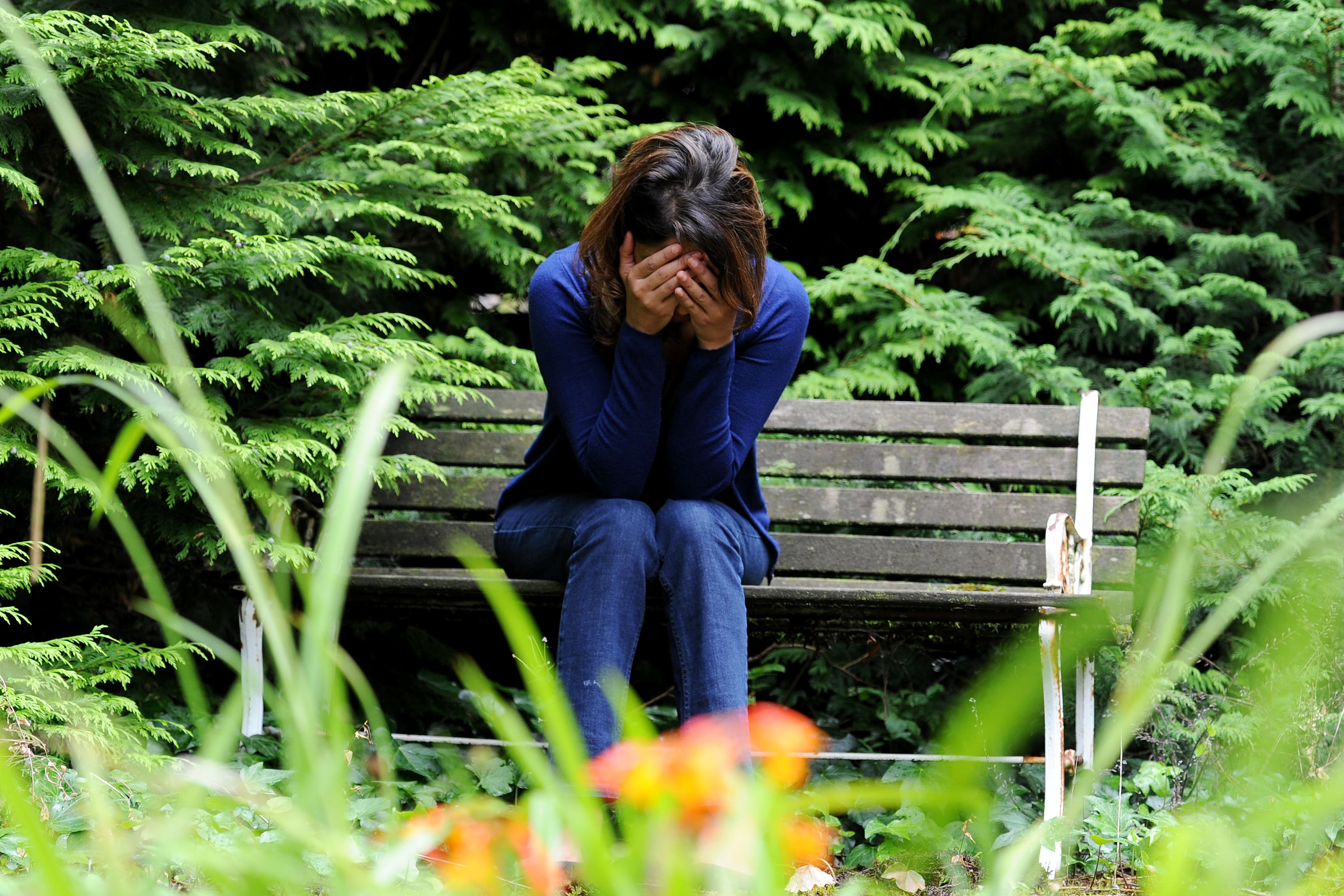Mental wellbeing at lowest level on record, ‘stark’ survey shows
The survey spoke to 4,394 adults and 1,764 children in 2022, with 70% reporting good or very good general health, down from 75% in 2008-09.

Mental wellbeing in Scotland is at its lowest level on record, a survey has suggested.
The Scottish Health Survey, published on Tuesday by the Scottish Centre for Social Research and the Scottish Government, involved 4,394 adults and 1,764 children in 2022.
Mental health and wellbeing in the survey is tracked using the Warwick-Edinburgh Mental Wellbeing scores, which range from 14 to 70 – the highest being the best level of mental wellbeing.
Last year, the average score was 47, down from 48.6 the previous year and the lowest since it was first logged in 2008, when it was measured at 50.
Mental wellbeing appeared to be heavily impacted by both deprivation levels and age.
The worst mental wellbeing was reported in those from the most deprived 20% of Scotland, with 44.7, while those in the most affluent areas reported an average of 48.3.
Those aged between 45 and 54 were found to have, on average, the worst mental health, with a score of 45.5 – while those aged between 65 and 74 had a score of 49.8.
The survey also shows a steady increase in the number of adults who have reported self-harming or attempting suicide.
In 2008-09, the figures show, 3% of people reported having self-harmed, rising to 10% in 2021-22.
Four per cent reported attempting suicide in 2008-09, while 7% said they had done so in the 2021-22 survey.
There has also been a steady increase in people reporting two or more symptoms of depression, up from 8% in 2008-09 to 13% in 2021-22.
Those reporting two or more symptoms of anxiety increased from 9% to 17% during the same time.
Billy Watson, chief executive of the Scottish Association of Mental Health, said the survey paints a “stark” picture.
“Across all of the areas measured – mental wellbeing, mental illness, loneliness, self-harm, anxiety, depression, attempted suicide – the results are worse than 2021 and in most cases the worst ever recorded in the Scottish Health Survey.
“We know the pandemic has had a hugely damaging impact on our mental health and wellbeing, and these findings underscore that.
We cannot afford to tinker around the edges of a system already under huge pressure
“Demand for mental health support is already high and is likely to remain that way for some time.
“We cannot afford to tinker around the edges of a system already under huge pressure – instead we need to reform and resource a holistic approach to mental health support which meets the growing needs of people with mental health problems across Scotland.
“The Scottish Government has committed to 10% of NHS frontline spending going on mental health, but instead we’ve seen two consecutive years of in-year cuts to the mental health budget.
“Today’s figures show we urgently need to take a different course, starting with the Scottish Budget later this month.”
In general, 70% of Scottish adults reported their health to be good or very good, down from 75% in 2008-09, but just 55% of those in the least well-off areas reported good health.
Those in the poorest areas were four times more likely to say their health was bad or very bad than their more well-off counterparts, the survey showed.
Scottish Labour deputy leader Dame Jackie Baillie said the report is a “damning indictment” of the Scottish Government.
“After 16 years of SNP failure, health is declining, mental wellbeing is at its worst point on record, and health inequalities remain stubbornly wide,” she said.
“These scandalous trends are not just the result of the current chaos in our NHS, but a shameful symptom of years of mismanagement right across the board.”
The Scottish Government said: “This survey gives us some insight into the changing health trends and habits in Scotland. Overall, there has been a trend of people smoking less and consuming less alcohol since 2012.
“The Scottish Government remains absolutely committed to our public health agenda and the range of priority actions that we have already set out in relation to the various health harming products, including legislation to restrict the promotion of less healthy food and drink.
“We recognise the ongoing impact of the pandemic on people’s mental health and wellbeing.
“Over the past year, several other factors have affected people’s mental health, including the cost-of-living crisis.
“This is why our new Mental Health and Wellbeing Strategy and Delivery Plan seeks to ensure we are meeting changing mental health needs over the coming years.”
Scottish Conservative health spokesman Dr Sandesh Gulhane said: “It is clear that the SNP’s failure to support frontline mental health services and organisations is having a devastating impact, with one in 10 Scots saying they feel lonely most or all of the time.
“The shocking findings come against a backdrop of the SNP presiding over Europe’s record drug death rate, the highest number of alcohol deaths since 2008, spiralling A&E waiting times and a failure to meet cancer waiting time targets for over a decade.”
Bookmark popover
Removed from bookmarks